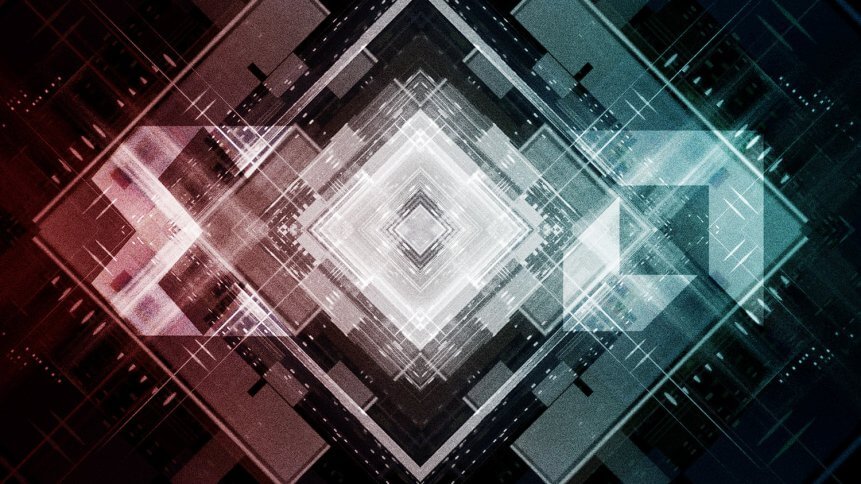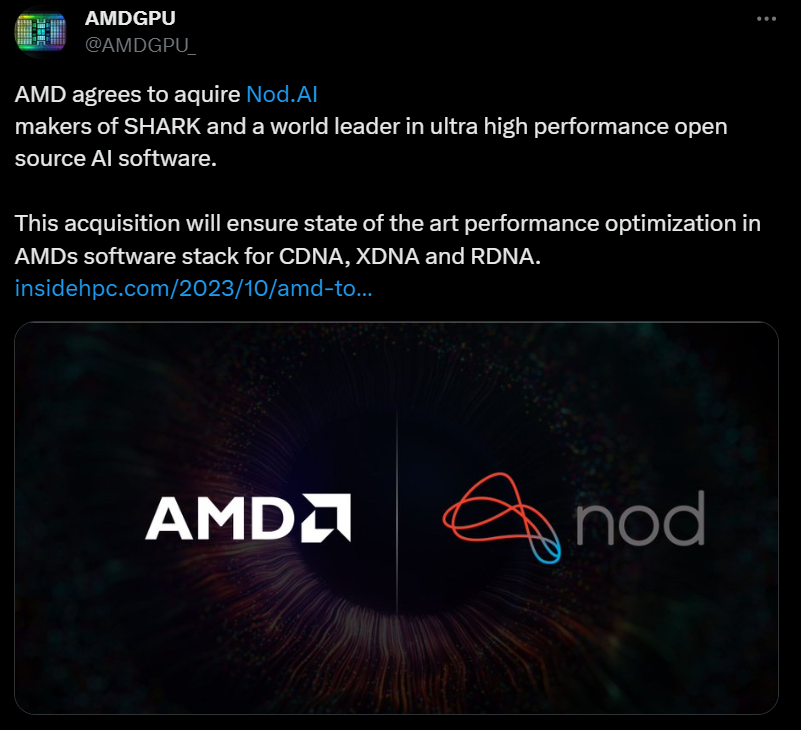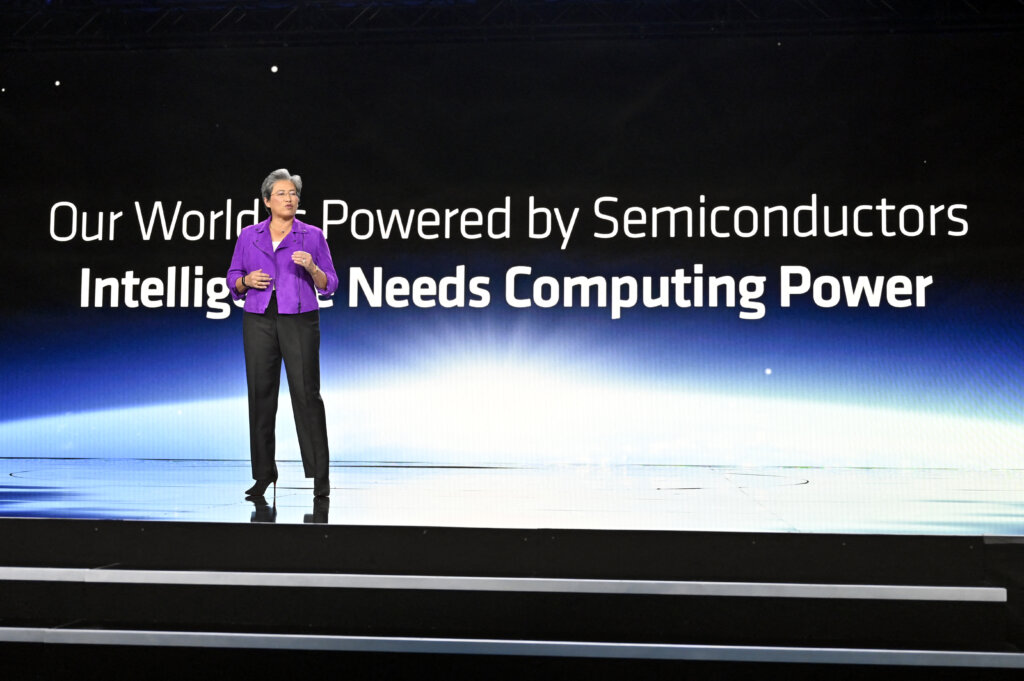AMD intensifies its rivalry with Nvidia by acquiring Nod.AI

- AMD said the acquisition, part of its “AI growth strategy,” will boost its open-source AI products.
- The move could shore up its competition against rival chipmaker Nvidia.
- AMD is capitalizing on Nvidia’s chip supply shortage to make headway.
Nvidia Corp. has historically been the undisputed frontrunner in AI GPUs. But since its GPUs have been facing scarcity due to high demand, Advanced Micro Devices (AMD), the second-largest maker of GPUs, and the only manufacturer within a light year of Nvidia’s dominant position, has positioned itself to seize more of the market share. The chipmaker has, in fact, acquired all the hardware pieces necessary to compete with its rival, but lately, it has been focusing on creating a comprehensive software portfolio.
The competition between AMD and Nvidia has a history stretching back for decades, even before AMD acquired ATI for its graphics division. Today, they continue to compete as the leading choices for top-notch gaming PC graphics cards, but there’s more to the story. Both companies are increasingly focused on AI, with the rivalry reaching new levels of intensity.
Nvidia holds a dominant position in the market for high-performance chips used in the development of ChatGPT and the AI services that have surged in popularity across the tech industry in 2023 – and show no signs of stopping any time soon.
This surge in demand for these services, following ChatGPT’s frenzy, has propelled Nvidia’s market capitalization beyond US$1 trillion. In fact, the surge has been so marked that the need for Nvidia’s AI chips has led to a shortage, which the company has acknowledged and is actively addressing. But ahortage of one manufacturer’s products can only benefit its rivals, and AMD has emerged as a formidable challenger, intensifying the competition even among players like Intel.
This week, AMD announced it had acquired another company to narrow the AI market gap on Nvidia. The chip giant said it is acquiring open-source AI software company Nod.ai in a move to expand its open AI software capabilities. For AMD, the agreement strongly aligns with its AI growth strategy, centered on an open software ecosystem that lowers the barriers of entry for customers through developer tools, libraries, and models.

AMD AI involvement takes a quantum leap as it acquires Nod.AI. Source: X
“The addition of Nod.ai will bring an experienced team that has developed an industry-leading software technology that accelerates the deployment of AI solutions optimized for AMD Instinct™ data center accelerators, Ryzen™ AI processors, EPYC™ processors, Versal™ SoCs and Radeon™ GPUs to AMD,” the company explained.
Nod.AI, or Nod Labs, builds open-source technologies “for future AI systems,” according to the startup. It mainly specializes in reinforcement learning, a type of system that “learns” via trial and error. The acquisition is expected to close this quarter, an AMD spokesperson told CNBC.
“At Nod.ai, we are a team of engineers focused on problem-solving — quickly – and moving at pace in an industry of constant change to develop solutions for the next set of problems,” Nod.ai’s co-founder and CEO Anush Elangovan said. “Our journey as a company has cemented our role as the primary maintainer and major contributor to some of the world’s most important AI repositories, including SHARK, Torch-MLIR, and OpenXLA/IREE code generation technology. By joining forces with AMD, we will bring this expertise to a broader range of customers on a global scale.”
Adding to Elangovan’s context, Nod.ai delivers optimized AI solutions to top hyperscalers, enterprises, and startups. The compiler-based automation software capabilities of Nod.ai’s SHARK software reduce the need for manual optimization and the time required to deploy highly performing AI models to run across a broad portfolio of the data center, edge, and client platforms powered by AMD CDNA™, XDNA™, RDNA™ and “Zen” architectures.
Meanwhile, AMD believes that acquiring Nod.ai will significantly enhance its ability to provide AI customers with open software to deploy highly performing AI models tuned for AMD hardware quickly. Vamsi Boppana, senior vice president of the Artificial Intelligence Group at AMD, said, “The addition of the talented Nod.ai team accelerates our ability to advance open-source compiler technology and enable portable, high-performance AI solutions across the AMD product portfolio.”
To top it off, Boppana sees an advantage in the sheer fact that Nod.ai’s technologies are already widely deployed in the cloud, at the edge, and across a broad range of endpoint devices today. The news of AMD acquiring Nod.ai came on the heels of the company’s purchase of French startup Mipsology to strengthen its AI inference software capabilities.
On August 24, the California-based chip giant unveiled the acquisition, saying that Mipsology, “a leader in AI software and long-standing AMD partner,” will help the company “accelerate our customer engagements and expand our AI software development capabilities.” Boppana, in a statement, wrote, “Specifically, the team will help develop our full AI software stack, expanding our open ecosystem of software tools, libraries, and models to pave the way for streamlined deployment of AI models running on AMD hardware.”
Overall, it is pretty apparent that both acquisitions are part of AMD’s larger strategy to challenge Nvidia’s dominance in the AI computing space with a broad portfolio of what AMD Chair and CEO Lisa Su have called “leadership GPUs, CPUs, and adaptive computing solutions for AI inferencing and training.”

LAS VEGAS, NEVADA – JANUARY 04: AMD Chair and CEO Dr. Lisa Su delivering a keynote address at CES 2023 at The Venetian Las Vegas on January 04, 2023 in Las Vegas, Nevada. (Photo by David Becker / GETTY IMAGES NORTH AMERICA / Getty Images via AFP)
In fact, since last year, Su and other executives have articulated a comprehensive AI strategy that addresses what she said is a “multibillion-dollar growth opportunity for AMD across cloud, edge, and an increasingly diverse number of intelligent endpoints.”







![Competing with the long-running Intel vs AMD vs Nvidia central processors rivalry, Amazon came out with its 3rd-gen Graviton chip and Trn1 AWS claims the new chipsets will help customers significantly improve performance, cost, and energy efficiency [see_also_flex pos='left' post_id='206950'] When Amazon acquired Annapurna Labs in 2016, the tech giant was seriously evaluating to build custom chips for its cloud infrastructure services, to give it an edge against its arch-rivals, Microsoft and Google. Today, the company has two new custom chips that would give Intel Corp, Nvidia Corp and Advanced Micro Devices (AMD) a run for their money. At its re:Invent 2021 conference yesterday, Amazon unveiled the Graviton3 and Trn1 chipsets. The former is basically the next generation of its custom ARM-based chip for artificial intelligence (AI) inferencing applications while Trn1 is a new instance for training deep learning models in the cloud. Amazon Web Services (AWS) CEO Adam Selipsky said during his keynote address that his market-leading public cloud company is focused on "making the full power of machine learning available for all customers. Lowering the cost of training and inference are major steps of the journey." AWS vs Intel vs AMD vs Nvidia The third generation of Graviton will soon be made available in AWC’s C7g instances, the company said, adding that the processors are optimized for workloads including high-performance computing, batch processing, media encoding, scientific modeling, ad serving, and distributed analytics. Selipsky says that Graviton3 is up to 25% faster for general-computer workload and provides two times faster floating-point performance for scientific workloads, two times faster performance for cryptographic workloads, and three times faster performance for machine learning workloads versus Graviton2. To top it off, Graviton3 uses up to 60% less energy for the same performance compared with the previous generation, Selipsky claims. Amazon’s vice president of Elastic Compute Cloud Dave Brown told Reuters that the company expects it to provide a better performance per dollar than Intel's chips. To top it off, AWS still works closely with Intel, AMD, and Nvidia and Brown said AWS wants to keep the computing market competitive by offering an additional chip choice. [see_also_flex pos='wide' post_id='208827'] Graviton3 and Trn1 According to Selipsky, Trn1 will be Amazon’s instance for machine learning training, delivering up to 800Gbps of networking and bandwidth, making it well-suited for large-scale, multi-node distributed training use cases. Customers can leverage up to tens of thousands of clusters of Trn1 instances for training models containing upwards of trillions of parameters. As per reports online, Trn1 supports popular frameworks including Google’s TensorFlow, Facebook’s PyTorch, and MxNet and uses the same Neuron SDK as Inferentia, the company’s cloud-hosted chip for machine learning inference. Amazon is quoting 30% higher throughput and 45% lower cost-per-inference compared with the standard AWS GPU instances](https://techhq.com/wp-content/uploads/2021/12/185050-untitled-design-4-150x150.jpg)


